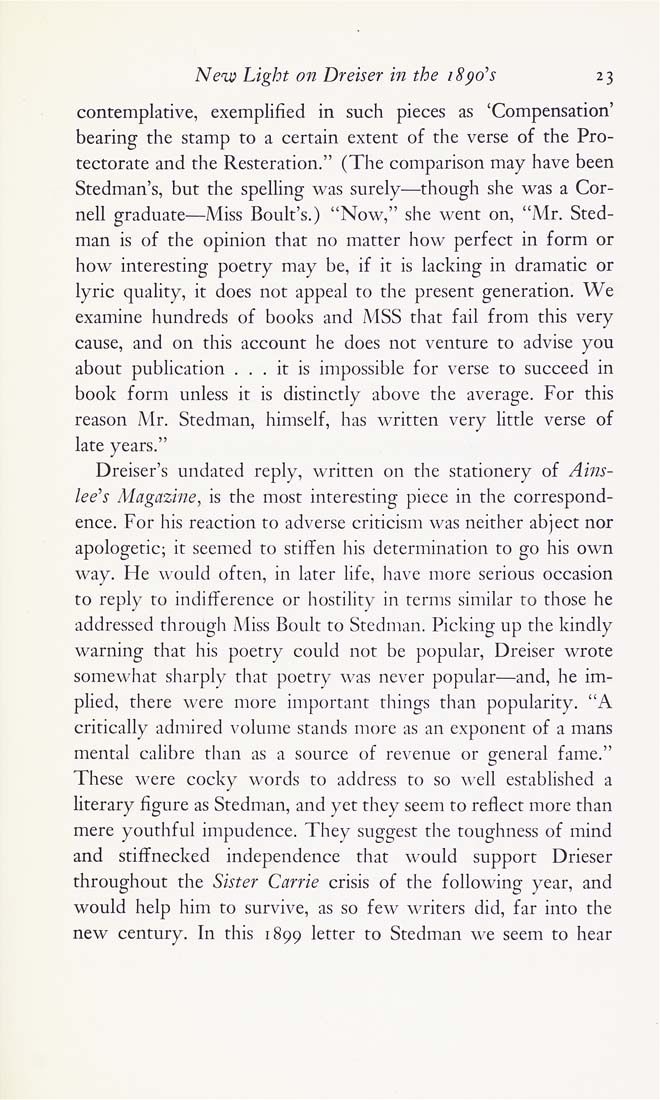Columbia Library columns (v.15(1965Nov-1966May))
(New York : Friends of the Columbia Libraries. )
|
||
|
|
|
|
| v.15,no.3(1966:May): Page 23 |

New Light on Dreiser in the iSfo's 23 contemplative, exemplified in such pieces as 'Compensation' bearing the stamp to a certain extent of the verse of the Pro¬ tectorate and the Resteration." (The comparison may have been Stedman's, but the spelling was surely—though she was a Cor¬ nell graduate—Miss Boult's.) "Now," she went on, "Mr. Sted¬ man is of the opinion that no matter how perfect in form or how interesting poetry may be, if it is lacking in dramatic or lyric quality, it does not appeal to the present generation. We examine hundreds of books and MSS that fail from this very cause, and on this account he does not venture to advise you about publication ... it is impossible for \'erse to succeed in book form unless it is distinctly above the average. For this reason Mr. Stedman, himself, has written very httle verse of late years." Dreiser's undated reply, written on the stationery of Aifis- lee's Magazine, is the most interesting piece in the correspond¬ ence. For his reaction to adverse criticism was neither abject nor apologetic; it seemed to stiffen his determination to go his own way. He would often, in later life, ha\'e more serious occasion to reply to indifference or hostility in terms similar to those he addressed through Miss Boult to Stedman. Picking up the kindly warning that his poetry could not be popular, Dreiser wrote somewhat sharply that poetry was ne\'er popular—and, he im¬ plied, there were more important things than popularity. "A critically admired \'olume stands more as an exponent of a mans mental calibre than as a source of revenue or general fame." These were cocky words to address to so well established a literary figure as Stedman, and yet they seem to reflect more than mere youthful impudence. They suggest the toughness of mind and stifi^necked independence that would support Drieser throughout the Sister Carrie crisis of the following year, and would help him to survive, as so few writers did, far into the new century. In this 1899 letter to Stedman we seem to hear |
| v.15,no.3(1966:May): Page 23 |







